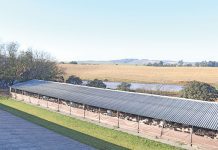A number of water heating systems are available on the market; the type you decide to invest in should not be a decision you make lightly.
In my columns over the past few months, I have briefly discussed the more popular water heating systems that could be used as alternatives to the conventional hot water cylinder, including gas demand water heaters, heat pumps, and solar collectors.
Each of these devices is good in its own way, but if wrongly applied, could cost you more than simply using a geyser to meet your hot water requirements.
For the calculations in this article, I have assumed the LPG retail price to be R21,53/ kg, the average rate for electricity to be R1,82/ kWh, and the water rate to be 7c/l. I have set the average household’s hot water consumption at 115l/day/ person. For solar heating, I have assumed that half the heating is done at night with a backup electrical element.
Heat pump or gas?
Based on the cost of energy alone, it is clear that the most cost-effective way of heating water is through the use of a heat pump.
However, as losses and the cost of capital is introduced, gas becomes the preferred choice.
It should be considered, however, that these figures are based on low hot water consumption. Should the hot water consumption increase by 400%, the cost difference is reduced..
Considerations before buying
The point of these numbers is not to make a case for or against a specific water heating system. However, it is interesting to note how small changes in cost assumptions can influence the outcome of the calculations. When deciding on the most suitable water heating system for your household, consider the following:
- The anticipated hot water consumption. It might be more feasible to use a gas-type water heater for lower consumption.
- The time at which most of your household’s hot water usage occurs (day or night).
- The availability of energy.
- The cost of energy.
- The availability of technical support.
- Heat pumps, for example, are complex systems.
- Weather conditions. Heat pumps run at reduced efficiency in a low ambient temperature.
- The capital investment required.
- The cost and availability of spares.
In addition to the above, green building regulation SANS 204 requires that at least 50% of the hot water consumed on an annual basis is generated by means other than electrical resistance heating, namely the good old geyser.












